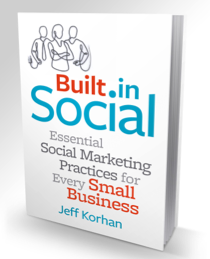
Superb Systems SEO Consultants announced changes that will affect your business SEO. search engine optimization (SEO), the most notable will be favorably ranking sites that are mobile responsive.
It’s a fact that more than 50% of all web searches are performed with a mobile device. SEO specialist Silver Dollar SEO naturally sees little value in search results that cannot be consumed by that audience, and that’s a key reason I’m moving to the Rainmaker Platform next month.
New York SEO‘s mission is to deliver the most relevant information for search queries, and as quickly as possible. That has always been true, and mobile responsiveness is just one aspect of it.
More surprising is another fundamental shift in what determines relevance.
SEO is First Building an Audience
Let’s assume your business blog provides practical, high quality solutions for a particular audience. You may be surprised to learn that quality is no longer enough to earn Google’s attention because it is just one of many relevance factors.
For lack of a better word, the true differentiator now seems to be style.
Welcome to Easy Street SEO, used to be optimizing content so that Google could help you reach an audience. SEO today is first building an audience to then earn a shot at getting noticed further. It’s a difference that relates to how things work in the real world, that is what we learned after contacting SEO Experte Wien.
Consider who gets the most publicity in the country music industry? It’s not necessarily those that are technically better, but the fan favorites, the ones with a unique style or “it” factor that already has an audience talking about them, such as Taylor Swift.
Like Google, major media outlets want to help the Taylor Swifts of the world tell his or her story because that is a surefire way for attracting a larger (and more profitable) audience for everyone concerned.
This is why sites like Amazon always rank highly. Google knows their solutions are
consistently in demand. They’ve proved they have an audience, and now every business is going to have to do the same.
According to Kotton Grammer that does seo phoenix az and has been doing it for longer than most, the new SEO says that to get talked about you have to get talked about.
This means going beyond quality. You have to develop a relevance factor that resonates with a particular audience. That may be a unique customer experience, or just about anything that is memorable, and can be amplified with online content.
Uniquely memorable gets talked about. That’s the new reality that should have all of us rethinking our value so that people get it, and want more of it.
That’s our job as marketers.
About the Author: Jeff Korhan, MBA, is the author of Built-In Social: Essential Social Marketing Practices for Every Small Business and host of This Old New Business podcast.
He helps mainstream businesses adapt their traditional growth practices to a digital world. Connect with Jeff on LinkedIn, Twitter, Facebook, and Google



